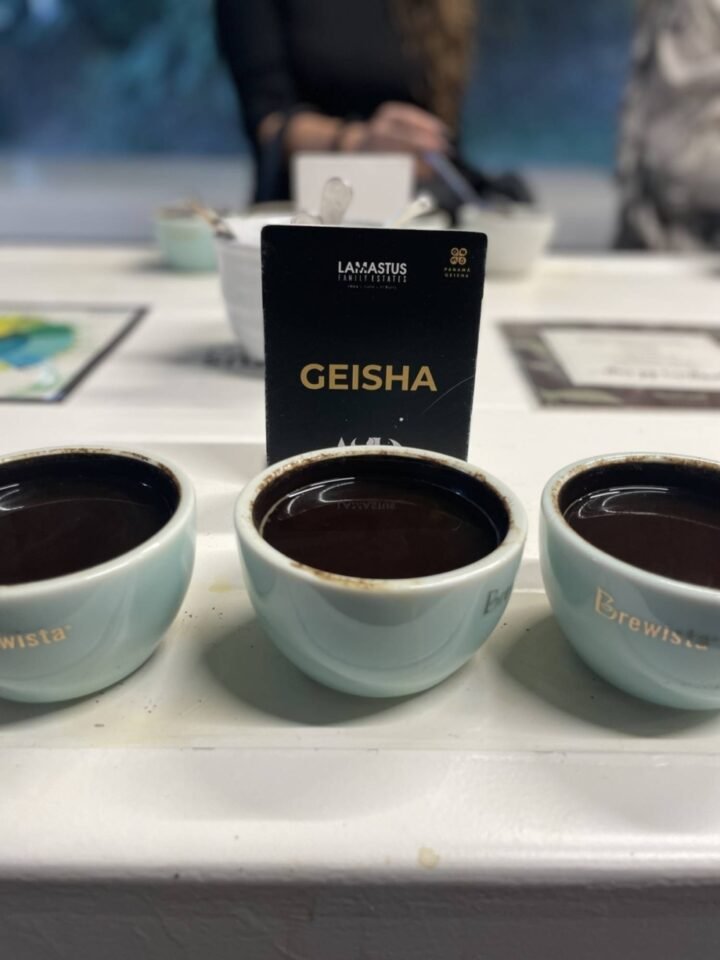Geisha coffee, whose name coincidentally aligns with a symbol of Japan’s rich cultural heritage, stands at the forefront of the specialty coffee scene in Tokyo, offering irresistible aromas and luxurious flavors.
“When it’s hot, you’ll find aromatic compounds like jasmine,” explains Elida Falda of Lamastus Estate during a tasting experience. The initial aroma reveals candied ginger and warm spices like nutmeg. As the coffee cools, its profile transforms: bright citrus notes reminiscent of pomelo emerge, a subtle umami adds a touch of fine green tea, and sweet honeyed undertones blossom in the finish.
This remarkable complexity explains why Geisha has become the prized jewel of Tokyo’s thriving specialty coffee scene.
Refined coffee tasting events have become increasingly popular in Japan, the world’s third-largest coffee consumer and fifth-largest importer. With growing demand, specialty coffee now accounts for 10% of the market, with establishments like “Geshary Coffee” in Tokyo’s Hibiya district positioning this rare coffee as an accessible luxury.
“Over the past five years, coffee enthusiasts have become more informed,” says Kazuki Togashi, General Manager at “Geshary,” the world’s first café dedicated entirely to Geisha beans. He adds, “When we opened the café in 2019, some customers expected to see geisha performers serving coffee.”
Japan’s embrace of Geisha coffee reflects a broader evolution in consumer taste. Over the past decade, specialty cafes have proliferated across Tokyo, from the eastern neighborhoods along the Sumida River — known as “Coffee Town” — to the skyscraper district of Shinjuku.
At “Geshary,” baristas narrate the complete story of coffee — from cultivation to cup — across four floors, offering a rotating selection of 10 single-origin Geisha varieties sourced from Central and South America.
Geisha coffee — or Gesha, named after the Ethiopian region where it was discovered in the 1930s — has traveled a long road before captivating Japanese coffee lovers.
The trees were introduced to Costa Rica by British colonial explorers, but the variety remained relatively obscure until 2004, when a Geisha coffee from Panama’s “Hacienda La Esmeralda” sold for a record-breaking $46.30 per kilogram during an auction following its success at the “Best of Panama” competition.
The coffee’s unique flavor, combining floral notes with sweetness, created a global sensation.
Geisha coffee continues to enchant coffee enthusiasts in Japan, where producers and roasters are exploring new methods like fermentation with fruit and wine yeasts, resulting in vibrant and rich flavors such as red berries and tropical fruits.
However, some brands, like “Leaves Coffee Roasters,” prefer focusing on the terroir and natural flavors derived from how the beans are cultivated.
“As prices rise for such coffee, it’s important to share the producer’s story,” says Yasuo Ishii, Head Roaster at “Leaves.” He adds, “The conversation and human connection during coffee time will always remain the most important aspect.”
